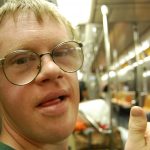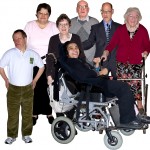Tom Crossland
Tom is a clinical psychologist who works in a specialist learning disability inpatient service and into a community team for people with learning disabilities. He works with people who have behaviour that challenges those that support them or have mental health problems requiring specialist health input. He is also involved in the running of a special school for children who have a diagnosis of autism, display challenging behaviour and have been excluded from other schools. His interests are helping people with ASD/autism to have a good quality of life; the use of mindfulness with people with learning disabilities or autism; social constructionist thinking about disability and using person centered approaches to reduce the need to for admission to and length of stay in assessment and treatment units.




